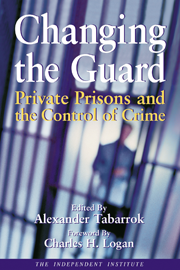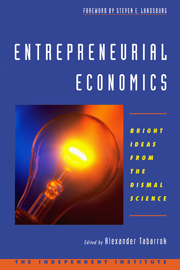Entrepreneurs create wealth. Anti-entrepreneurs destroy wealth. Judging by the results of the past month, the U.S. Justice Department’s Antitrust Division is the greatest anti-entrepreneur in all of history. On April 1, before news that the Microsoft settlement negotiations had broken down had reached the markets, Microsoft was worth $106 per share or $551 billion. On April 24, after the federal government and the attorneys general of 19 states indicated that they might ask Judge Jackson to break Microsoft up, the company’s shares were worth $66. Thus, April is the cruelest month—by the numbers a $40 drop or a loss of $208 billion.
The $208 billion dollar loss is so far out of proportion to any possible gains from breaking Microsoft up as to call into question the utility of antitrust law. The theory behind breaking up Microsoft is that consumers will gain as competition pushes prices down. Economists Stan Liebowitz and Steve Margolis have shown that in markets where Microsoft competes prices fall much more than in other markets—making the underlying argument supporting a breakup dubious on its face. But even if we accept that prices will fall with a Microsoft breakup the gains to consumers cannot possibly come close to the $208 billion loss to shareholders.
The loss to Microsoft shareholders amounts to $768 for every person in the United States. Can anyone believe that breaking Microsoft up is going to create value in excess of $768 for every person in the United States? It’s as if breaking up Microsoft was going to cause the prices of the Windows operating system and Office software to fall to zero! Obviously, this is absurd.
Not all of the decline in the Microsoft stock can be blamed on the antitrust investigation. But even if we just focus on the losses to Microsoft on April 3 and April 24, which are most plausibly related to the antitrust suit—Microsoft stock went down on these two days by a total of $27 per share or $140 billion. Even this lower number, equivalent to $514 for every person in the United States, is far larger than any possible gains that could come from a breakup. Here is a way of testing that proposition. Ask yourself whether as a consumer you would be willing to pay $514 to see Microsoft broken up into two or three separate companies.
The losses to Microsoft from the antitrust investigation are so punitive that they would plainly be unconstitutional if awarded by a jury. What the markets are telling us is that even the threat of breaking up Microsoft is extremely costly. If Microsoft is actually broken up the losses will be even more severe. America is supposed to be a nation of entrepreneurs but it seems that today the anti-entrepreneurs have the upper hand.












